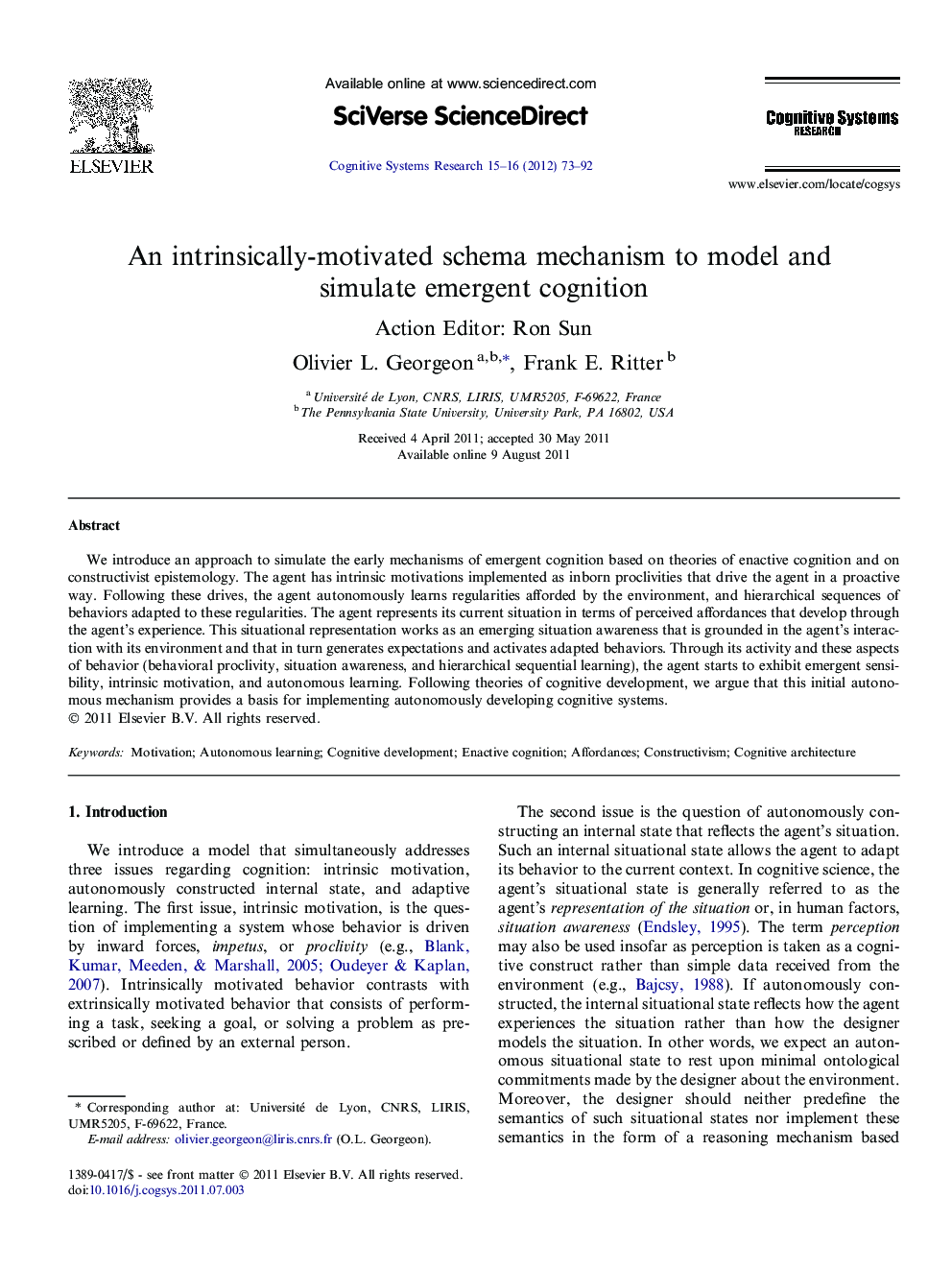| Article ID | Journal | Published Year | Pages | File Type |
|---|---|---|---|---|
| 378509 | Cognitive Systems Research | 2012 | 20 Pages |
We introduce an approach to simulate the early mechanisms of emergent cognition based on theories of enactive cognition and on constructivist epistemology. The agent has intrinsic motivations implemented as inborn proclivities that drive the agent in a proactive way. Following these drives, the agent autonomously learns regularities afforded by the environment, and hierarchical sequences of behaviors adapted to these regularities. The agent represents its current situation in terms of perceived affordances that develop through the agent’s experience. This situational representation works as an emerging situation awareness that is grounded in the agent’s interaction with its environment and that in turn generates expectations and activates adapted behaviors. Through its activity and these aspects of behavior (behavioral proclivity, situation awareness, and hierarchical sequential learning), the agent starts to exhibit emergent sensibility, intrinsic motivation, and autonomous learning. Following theories of cognitive development, we argue that this initial autonomous mechanism provides a basis for implementing autonomously developing cognitive systems.
► We developed a new algorithm to generate emergent cognition. ► Implements intrinsic motivation, emergent situation awareness, and adaptive learning. ► Based on theories of enactive cognition and constructivist epistemology. ► The agent’s developmental learning is demonstrated in two simple environments.
